|
It was a sunny but cold day in October. Twenty young men in long, dark habits knelt in the big, roomy church. The melody of the old organ, played by an invisible musician, echoed through the building. That melody was unknown to me. On that day, I believed that every corner of that church and my heart were full of the melody of glory. I was one of the twenty men kneeling near the altar who had received from the hands of a priest the big silver cross. It was attached to a ribbon that was a black as coal. This was the act of my eternal sacrifice to God. In my shaking hands, I held the crucifix of the One to whom I promised to be a member of the Society of the Catholic Apostolate. I promised chastity, poverty, obedience, perseverance, the sharing of resources, and the spirit of service. I remember noticing that it was like a wedding: the melody of that song had some similarity to a wedding song, although it is possible that it was just the melody of my heart... After one year in the priesthood, I was completely immersed in pastoral work. Holy Mass, catechesis, and long lines to the confessional before Christmas and Easter filled me with happiness. Often when having conversations with people, I would ask them who Jesus was for them. Once, when I met a classmate from school, she asked what made me decide to become a priest. I tried to explain to her that it was a calling to follow God and to explain the happiness that I had in my heart. However, the more I tried to explain to her, the more I understood the weakness of my arguments to a non-believer. After that conversation, the question that Jesus made to the apostles “Who do you say that I am?” often appeared in my mind. Who is that One to whom I offered my life in the Pallottine community? I was the assistant to the parish priest near my hometown, and I was also a chaplain in a neuropsychiatric clinic where there were more than 200 men with different mental disabilities. I thought that I was used to the unusual situations that sometimes happened during Holy Mass: interruptions, babies with smiles on their faces, spontaneous and childish simple questions that they asked. However, there were still many things I was not used to, like the young burdened man at the clinic who touched the cross that I sometimes wear and asked me, “Who is that man?” I was a little confused by his question and tried to give him a simple answer—I just said that he was my friend. This answer was enough for the young man, because he understood the concept of friendship. His nurse Anna and caretaker Julia, who suffered with him in his illness, embodied friendship for him. Then I noticed that my answer was not just an answer to his question, but also to my own. “Who do you say that I am?” Friendship—this is one word with which I can describe my consecrated life. Friendship is not easy because it implies relationship, maturation, and a constant internal struggle with selfishness. I have noticed that in arduous times in my life the voice of my Friend can be heard more strongly. I have heard that voice many times throughout my Pallottine life. Maybe it was the voice of that invisible musician who played the melody in my heart while I first held the big silver cross in my hands during my final vows. I know that this voice has been calling me to bring the words of His Gospel to many different people and areas, which sometimes are very dangerous and unpredictable. I believe that—like the melody in that church where I was kneeling near the altar with my confreres—my consecrated life gains new notes, changes, and rhythms each day. It is not possible to change the melody. I just try to hear the voice of the Eternal Master, the invisible musician, for whom I have consecrated my life in the melody of His glory. This year, we celebrate World Day for Consecrated Life on February 2. For more resources to guide you through vocational discernment, please click here. To learn more about St. Vincent Pallotti and Pallottine spirituality, please click here. **This post was originally published on 2/5/2019**
0 Comments
As the Church prepares to celebrate World Mission Sunday, we invite you to read this post from Sister Mary Altar of Sacrifice about her missionary vocation. When I was in seventh grade, about the age of 12, I decided to plan my life. I thought that I urgently needed to have an idea and start preparing for my future. I decided that I would be a missionary. I wanted to go to Africa and care for the children, especially those in most need. I always desired to adopt many children, including many with different disabilities. However, the missing piece of my life puzzle was that I didn’t even know what “being a missionary” really meant, and I had never thought about how my vocation would fit into my life either. As time went on, I realized that it was true that I loved to be around and work with children, and I had a great desire in my heart to go out to the whole world to help those in most need. However, I also discovered that God had a very special calling and plan for me, to use me as His instrument. As Mother Teresa said, “I am a little pencil in God’s hands. He does the thinking, He does the writing. He does everything and sometimes it’s hard because it is a broken pencil and He has to sharpen it a little more.” My name is Sister Mary Altar of Sacrifice, and I grew up in Kansas City, Kansas and went to Catholic school my whole life, from kindergarten through college. Thanks be to God, I was given a Catholic upbringing not only at school but also at home. Although I have a truly bad memory, I distinctly remember the different moments of the sacraments in my life, and I believe that it was the grace of the sacraments that opened my heart and led me to discover my religious and missionary vocation. Preparing for First Communion, I remember arguing with my mom about not wanting to wear the fancy white dress. I really disliked dresses because I was a tomboy who grew up with 3 older brothers. However, I understood the importance of the sacrament and was so excited to receive Jesus that I knew that I had to look my very best! It wasn’t until I was preparing for the sacrament of Confirmation that I began to take my Catholic faith seriously and hold it as my own. Our religion teacher told us “this is the moment (Confirmation) that you become an adult in the Church and have to take your faith as your own, so you must decide what you will do with it!” After that, I continually got more involved in the Church throughout high school by joining the youth group, aiding with junior high youth group, lectoring, being a Eucharistic Minister, leading retreats, frequenting the sacraments of confession and communion, etc. I also had the opportunity to do a 2-week mission trip to Peru, which confirmed my early desire to do mission work abroad. The experience of leaving all behind to go serve another was exciting and invigorating. I could concretely see that these people materially were poorer than I, but to see the richness of the treasure of their faith was enlightening. Finally, the time came for me to decide which college I would go to. I decided instead that I would do a gap year of service in another country, but my parents had other plans for me, so my “missionary adventure” was put on hold. Thanks be to God, I decided to go to Benedictine College, where I fell even more in love with Jesus and my Catholic faith, discovered my religious vocation, and finished my degrees in Elementary and Special Education. A month after graduation, I entered the convent in Washington D.C. with the Servants of the Lord and the Virgin of Matara, a missionary order founded in Argentina and currently in over 40 countries. When I visited them for the first time during college, there was a moment of actual grace that I understood this is where God was calling me to fulfill my vocation, and here, He would fulfill all the desires of my heart. I could see the puzzle pieces all fit perfectly together. Now, I am currently a missionary in Papua New Guinea in Oceania and have been here for just over a year. My main apostolate (or missionary work) is in the Primary School of our parish, teaching and working to bring a higher level of integral education to our students. Since I have entered religious life, every day has been a “missionary adventure.” However, being a missionary doesn’t just mean going to another country. Through our Baptism, we have been called to follow Jesus and sent to be missionaries to the world. The first step is to evangelize ourselves. We must look at our life and ask, “am I truly living the Gospel in my daily life and following Jesus in everything I think, say, and do?” Then, we must complete Christ’s mandate to love our neighbors and bring the Gospel to those closest to us. Sometimes, this is even more challenging than leaving our own family and country to serve someone. We must learn to be missionaries in our daily lives and pray and discern to see where and how God is calling us to fulfill that mission. Some have a special calling to give their whole lives as priests or religious to do this work! In addition, God calls some—priests, religious, and laity—to be missionaries abroad. However, we, as Catholics, are all called to be missionaries. As St. Catherine of Siena said, “If you are who you were meant to be, you will set the world on fire!” So, I invite you to pray for the missions and all missionaries in the world in a special way during this month of missions, but also I invite you to take some time to listen and pray about how God is calling you to be a missionary in your life. For more resources on Vocational Discernment, please click here. **This post was originally published on 11/3/2020. AuthorSister Mary Altar of Sacrifice serves as a religious missionary in the Diocese of Vanimo, Papua New Guinea When you hear the word “vocation” what comes to mind?
In my last year of college, vocation seemed like a puzzle to be solved. I put a lot of pressure on myself to figure out “what should I do with my life.” I met with a spiritual director and weighed several options, agonizing over how I would know which was the right choice. Although my spiritual director and many other people in my life tried to tell me that I didn’t have to figure out the entirety of my life just yet, I wasn’t listening. I had a very narrow view of vocation as something to be discerned once and only once. I thought, if you’ve done it right, you stick with your choice for your whole life. I imagined that God had my life mapped out for me and there was a very definite direction I should take; I just needed to figure out which it was. Now, 11 years later, I realize just how much God’s grace has been at work in me in so many ways—especially in broadening my understanding of vocation. I’ve come to really appreciate that discerning one’s vocation is not like completing a task at which we can excel or fail. It’s not a question with a single right answer. In fact, God’s plan for us is none other than to be holy, and to do so in ways specific to us, “to reflect and embody, at a specific moment in history, a certain aspect of the Gospel” (Gaudete et Exsultate, 19). The Second Vatican Council’s Dogmatic Constitution on the Church speaks of this universal and personal call to holiness by saying that “all the faithful, whatever their condition or state, are called by the Lord – each in his or her own way – to that perfect holiness by which the Father himself is perfect” (Lumen Gentium, 11). Each and every one of us has this fundamental vocation, the one that underlies every other particular way in which God calls us to holiness. Holiness isn’t lived out in a single grand way possible for only a select few; “We are all called to be holy by living our lives with love and by bearing witness in everything we do, wherever we find ourselves” (Gaudete et Exsultate, 14). In Gaudete et Exsultate, Pope Francis issues a powerful summons: “You too need to see the entirety of your life as a mission” (GE, 23). With this broader view of vocation, I can more readily recognize the multitude of ways in which God has drawn me to himself throughout the course of my life. I can discern how I am being called to holiness in this moment and reflect on how my response in the here and now is part of my greater life’s mission. Now I understand vocation as more than a single call. It is, rather, living our lives in a constant awareness of and responsiveness to the promptings of the Lord, who draws us to himself. Vocation is not inward looking; it draws us outward to God and neighbor. This redirected gaze allows us to recognize and receive with gratitude the gifts we are given so that we can more freely and truly make a gift of ourselves. Such self-emptying love is what it means to be Christ-like, to be holy. It forces us to reframe our questions. Instead of asking, “What do I want to be?” or “What do I want to do with my life?” (as I kept asking myself in college), we can prayerfully discern “How is God calling me to make a gift of myself?” This certainly applies to my state in life, whether I am called to give of myself in marriage or religious life. But I also respond to this call to self-gift by carrying out my work with integrity and skill in the service of my brothers and sisters, by patiently teaching my little ones how to follow Jesus, by refusing to gossip, and by saying a kind word to the person I encounter on the street (to list a few examples from Gaudete et Exsultate 14- 16). My life’s journey has taken a lot more turns than I could have anticipated those many years ago. Yet the Lord has made use of each step, big and small, to draw me ever closer to himself. Click here for more resources on Vocational Discernment. Faith is a gift. The ability to practice that faith, to worship freely, to share our faith in the public square, is also a gift. Each year, the Church in the US observes Religious Freedom Week. This year, we focus on Solidarity in Freedom. In Fratelli Tutti, Pope Francis writes, “Solidarity means much more than engaging in sporadic acts of generosity. It means thinking and acting in terms of community” (Fratelli Tutti, 116). The theme of Solidarity in Freedom forces us out into a global mindset, to one of community and fraternity. I’d like to focus on Religious Freedom Week through the stories of two men 400 years apart, Safa Al Alqoshy and St. John Southworth. At the 2018 Synod on Young People, the Faith, and Vocational Discernment, Safa Al Alqoshy, the only youth delegate from Iraq to the Synod, shared the story of the struggle of Iraqi Christians. While I didn’t meet Safa in my time at the 2018 Synod, I was around him during the 2019 Post-Synod Forum in Rome on Christus Vivit. His stories from the Synod followed him back to Rome where he was met with great admiration. Even though he had to arrive at the Forum late, the community that formed with him was immediate. Safa said to Crux, “It’s very important to pay attention that there is not only persecution by killing, there is a persecution by psychology, by feelings. You feel that you are alone, that you are not supported” (Crux). Safa expressed the reality of friends and family fleeing from Iraq, likely not to be seen again. He wasn’t just speaking generally about the people of Iraq, but from his own personal experience. He shared about two of his friends who were killed in a car bombing in 2009 and how Safa and his friends shared the common experience of saying, “see you next week” only to never see one another again. The temptation can be to take Safa’s story, and the story of so many Christians like him across the world, and to use it for our own advantage. To share it as an example, but one devoid of the personal reality which courses through its proverbial veins. When we share Safa’s story as just another example of the terrible persecution that Christians face, even worse as a “look what could happen to us next” story in relation to religious freedom in the US, we fail to show solidarity. We dehumanize those who have died, those who have been separated by the flight for freedom and safety, and we turn our suffering brothers and sisters into objects whose story we use for our perceived gain. No, instead, Pope Francis urges us to be in true solidarity with Safa and his friends and family, to think and act in community. We must pray for them, we must give when we can give, but we cannot use them as pawns in a game of politics that is antithetical to true solidarity. About 400 years before Safa there lived an English priest by the name of John Southworth. John was born around 1592 and was ordained in 1618 at the English College, Douai in France. St. John was arrested and imprisoned multiple times throughout his life, all for being a Catholic priest. Between his imprisonments, St. John would serve the plague victims of Westminster and provide sacraments to the sick and dying. St. John was arrested for the final time in 1654 and was sentenced to be hung, drawn, and quartered. His body was returned to France in 1655 and buried after having been, literally, put back together. During the war between the English and French in 1793, St. John’s body was buried in an unmarked grave where it remained until 1927 when the grave was discovered. He was canonized in 1970 by Pope St. Paul VI. John’s story is one of perseverance and solidarity. He was arrested multiple times and, eventually, killed for his Catholic faith. All throughout that time, he remained in solidarity with the English people, serving them through the sacraments, refusing to allow his own persecution to stand in the way of his Gospel mandate to be Christ to the world around him. Religious Freedom Week invites us to be, like St. John, fervent in our faith. It reminds us that, even in times of persecution, we carry on in sharing the Gospel. The week also invites us to remember those in our days who are persecuted, such as Safa and our brothers and sisters in Iraq. Solidarity means that we are united with them in prayerful community, but never using them for our own means- detaching their story from their persons. May we pray for all persecuted Christians and reflect upon the meaning of religious freedom this week with the hope of growing in solidarity with our brothers and sisters across our Universal Church.
|
Details
Archives
July 2024
Categories
All
|
About |
Media |
© COPYRIGHT 2024 | ALL RIGHTS RESERVED

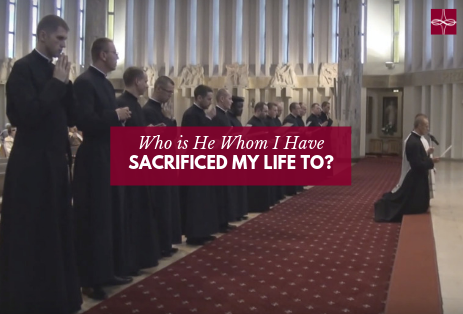
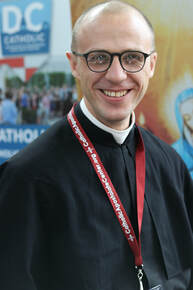
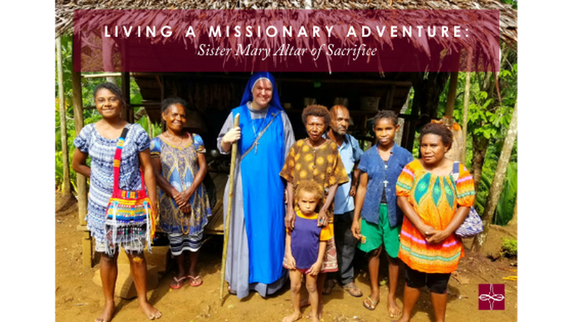
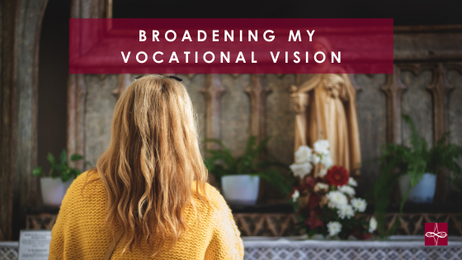
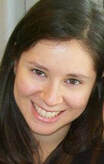
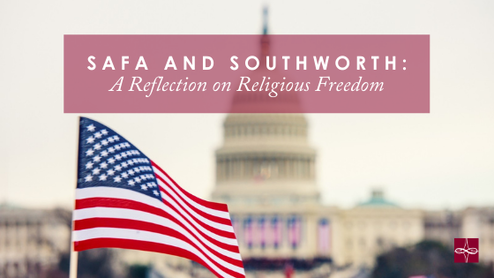
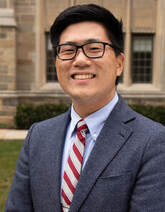
 RSS Feed
RSS Feed